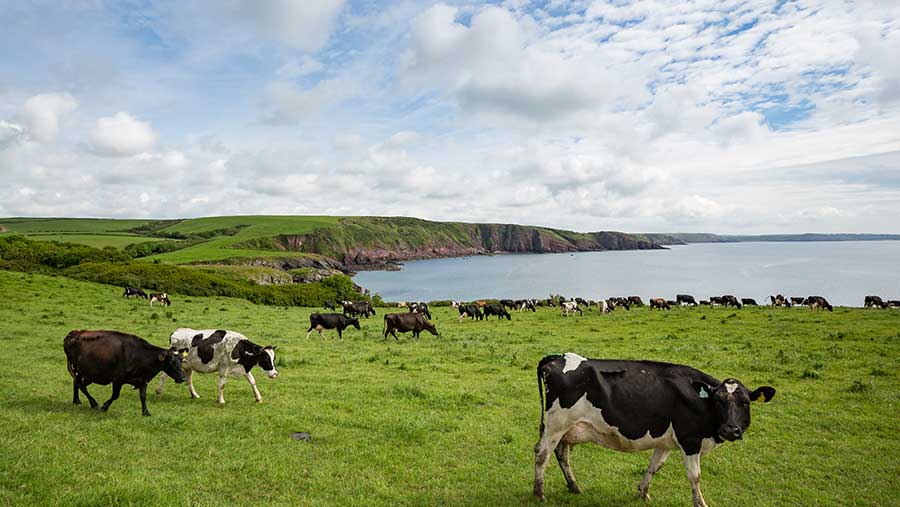Welsh milk production threatened by planned nitrogen limits
 © Michael Evans/Adobe Stock
© Michael Evans/Adobe Stock Milk production in Wales will plummet by 336m litres/year unless farmers are given more generous allowances to spread slurry and fertiliser on their land under the new all-Wales nitrate vulnerable zone rules, farming unions have warned.
The unions are pressing the government to go ahead with its proposed new licensing scheme, to allow a 250kg/ha annual holding nitrogen limit instead of the 170kg/ha set out in the new legislation.
See also: Welsh farmers asked to take part in crucial NVZ consultation
According to AHDB modelling, the stocking density on Welsh dairy farms would need to reduce by 17% to meet a 170kg/ha limit.
NFU Cymru president Aled Jones, who is a dairy farmer, said that if the stocking density is lowered strictly through reducing the number of animals, the equivalent reduction in annual milk production would be 336m litres.
The ripple effect would be felt by other farming sectors, Mr Jones suggested.
“The stocking limit imposed by the regulations would reduce the likelihood of dairy farms to take in sheep over winter, while a reduction in the number of dairy animals will have a knock-on effect on the levels of beef production in Wales,” he said.
The union also said it had “clear evidence” to demonstrate that a 250kg/ha limit would not damage the environment.
Concerns
How the licensing scheme would work and how many farms would fit the eligibility criteria remains a source of concern.
The Farmers’ Union of Wales (FUW) said applications must be considered on a case-by-case basis, otherwise farms that are near rivers with poor water quality resulting from pollution from other sources could be denied a licence.
The FUW also wants a shift away from current fixed closed periods for slurry spreading and storage requirements set out in the regulations.
Both unions were responding to the government’s consultation on the regulations, which closed on 17 February and attracted more than 1,400 responses.
